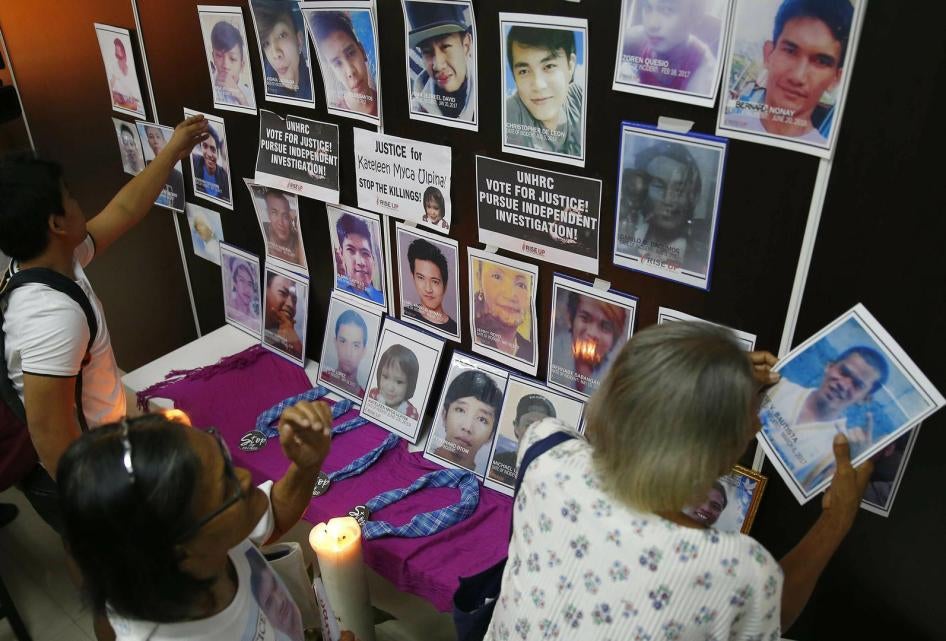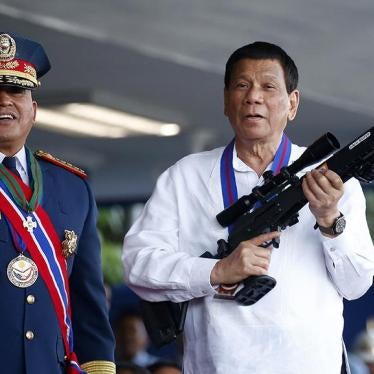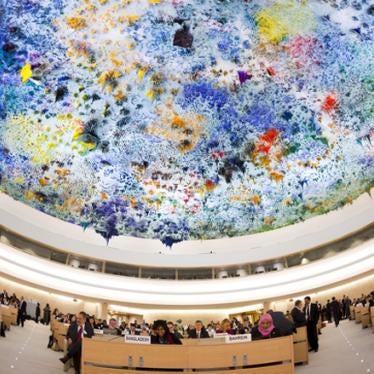(Geneva) – The United Nations Human Rights Council’s adoption of a resolution on the Philippines is crucial for holding the government accountable for thousands of “drug war” killings and other abuses, Human Rights Watch said today. The council’s 41st regular session runs from June 24 through July 12, 2019.
On July 11, the council approved the resolution initiated by Iceland by a vote of 18 to 14, that requests the UN human rights office to present a comprehensive report on human rights in the Philippines to the council next June. The resolution also expresses concern about the range of rights violations in the country and calls on the government to cooperate with UN human rights mechanisms and experts. The Philippine government earlier denounced the resolution as a “divisive motion” and sought to block it.
“The Human Rights Council resolution on the Philippines is a modest but vital measure,” said Laila Matar, deputy Geneva director. “It signals the start of accountability for thousands of ‘drug war’-related killings and other abuses, and will provide hope to countless survivors and families of victims.”
Iceland and other countries presented the resolution to address flagrant violations of human rights in the Philippines under President Rodrigo Duterte’s administration. The requested June 2020 report by the high commissioner for human rights and discussion by member states could form the basis for further action if the situation in the Philippines does not improve or those responsible for abuses go unpunished. Meanwhile, the council should monitor the Philippines closely and take urgent action as necessary.
Since Duterte took office in June 2016, Philippine police have said that they have killed more than 6,600 people during anti-drug operations. Other estimates by local nongovernmental organizations and the national Commission on Human Rights place the death toll of the “drug war” at more than 27,000.
The police have sought to justify the killings on the grounds that suspects “fought back.” Such claims are belied by reporting from human rights groups, including Human Rights Watch, and domestic and international media that found police routinely plant evidence such as guns and drugs on victims’ bodies to justify killings.
The unlawful killing of drug suspects has affected the families of the mostly impoverished victims, particularly children. Many of these children have stopped going to school; are forced to work or live in the streets after the killing of the family breadwinner; and suffer deep, psychological trauma.
In Geneva, the Philippine government tried to deflect the issues raised in the resolution by waging an aggressive disinformation campaign against Iceland and those that supported the measure, including human rights groups and critics of the “drug war.” Previously, the Philippines, a member of the council, and Duterte himself sought to discredit the UN and the experts it appoints to investigate human rights issues. In early June, 11 of these experts launched a call on the Human Rights Council to establish an independent investigation into human rights violations in the Philippines. The government also launched a campaign in the Philippines to vilify and harass human rights defenders, journalists, and clergy who criticized the “drug war” killings.
“Countries determined to address the human rights crisis in the Philippines prevailed in the face of Manila’s ultimately counterproductive efforts to shield itself from scrutiny,” Matar said. “The challenge now is to ensure that the process moves quickly to compel the Philippine government to stop the killings and prosecute those responsible.”









